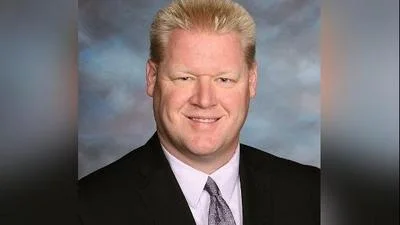Rob Hutton, Wisconsin State Senator for 5th District | Facebook
Rob Hutton, Wisconsin State Senator for 5th District | Facebook
According to the Wisconsin State Legislature's official website, the bill was described as follows: "theft crimes and providing a penalty. (FE)".
The following is our breakdown, based on the actual bill text, and may include interpretation to clarify its provisions.
In essence, this bill introduces a provision allowing for the aggregation of values in cases of property and retail theft committed by the same defendant within a six-month period. Under the proposed changes, the penalties for these thefts would be determined based on the total aggregated value of the items stolen across multiple offenses, rather than evaluating each incident separately. This adjustment aims to treat repeated minor thefts as a single crime, potentially increasing the severity of the charges depending on the cumulative value. Additionally, the bill stipulates that such aggregated crimes can be prosecuted in any county where any of the offenses occurred, granting the local prosecutor exclusive jurisdiction over the case. The effective date of these changes, however, is not specified in the bill.
The bill was co-authored by Representative William Penterman (Republican-38th District), Senator Rachael Cabral-Guevara (Republican-19th District), Senator Steve L. Nass (Republican-11th District), Senator Cory Tomczyk (Republican-29th District). It was co-sponsored by Representative Scott Allen (Republican-82nd District), Representative Elijah R. Behnke (Republican-6th District), and Representative Robert Brooks (Republican-59th District), along 14 other co-sponsors.
Rob Hutton has authored or co-authored another 14 bills since the beginning of the 2025 session, with none of them being enacted.
Hutton graduated from the University of Wisconsin-Whitewater in 1990 with a BA.
Hutton, a Republican, was elected to the Wisconsin State Senate in 2023 to represent the state's 5th Senate district, replacing previous state senator Dale Kooyenga.
In Wisconsin, the legislative process starts when a senator, constituent, group, or agency proposes an idea for a bill. After drafting, the bill is introduced, numbered, and referred to a committee for review and public input. If approved, it moves through three readings and votes in both the Senate and Assembly. Once both chambers pass the same version, the bill goes to the governor, who can sign it, veto it, or let it become law without a signature. Only a small share of bills introduced each session ultimately become law. You can learn more about the Wisconsin legislative process here.
| Bill Number | Date Introduced | Short Description |
|---|---|---|
| SB92 | 03/07/2025 | Theft crimes and providing a penalty. (FE) |
| SB76 | 02/26/2025 | Dismissing or amending certain criminal charges and deferred prosecution agreements for certain crimes |
| SB38 | 02/12/2025 | Personalized registration plate fees for gold star family special registration plates. (FE) |
| SB25 | 02/05/2025 | Court-issued criminal complaints in officer-involved deaths |






 Alerts Sign-up
Alerts Sign-up